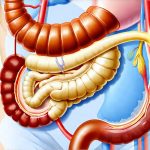The simple act of eating is often relegated to background noise in our increasingly hectic lives. We’re frequently guilty of combining mealtimes with work, scrolling through social media, watching television, or engaging in animated conversations – all while mechanically consuming food. This isn’t merely a lifestyle quirk; it represents a significant disruption to the natural physiological processes essential for proper digestion and overall well-being. While seemingly innocuous, consistently multitasking during meals can have surprisingly far-reaching consequences, one of which is delayed gastric emptying and subsequent stool delay, impacting not just digestive comfort but also nutrient absorption and even mental clarity.
The human body operates on a complex interplay between the nervous system, hormonal signals, and physical processes. Eating should trigger a cascade of events geared towards efficiently breaking down food and extracting vital nutrients. However, when our attention is diverted – split between chewing and digesting versus external stimuli – this intricate process is compromised. The focus shifts away from internal cues like fullness and satiety, leading to overeating, but more critically, it disrupts the digestive system’s ability to function optimally. This article will delve into how excessive multitasking during meals contributes to stool delay, exploring the underlying mechanisms, potential consequences, and practical strategies for mindful eating.
The Gut-Brain Connection & Digestion Disruption
The relationship between our brain and gut is profoundly interconnected – a bidirectional communication network often referred to as the gut-brain axis. This axis isn’t just about feeling butterflies in your stomach when nervous; it’s a fundamental part of how digestion unfolds. When we eat mindfully, paying attention to the texture, smell, and taste of our food, signals are sent from the brain to the digestive system, preparing it for optimal function. Saliva production increases, enzymes are released, and peristalsis – the wave-like muscle contractions that move food through the digestive tract – is initiated. This preparatory phase is crucial for efficient breakdown and absorption.
Multitasking throws a wrench into this delicate process. When our attention is elsewhere, the brain doesn’t fully register the act of eating, leading to diminished signaling along the gut-brain axis. This results in reduced secretion of digestive enzymes, slower peristalsis, and ultimately, incomplete digestion. Food sits longer in the stomach and intestines, increasing the risk of fermentation and gas production, and creating a breeding ground for discomfort. It’s not simply that we are distracted; it’s the consistent disruption of this natural signaling pathway that leads to long-term digestive issues.
Furthermore, the stress hormones released during multitasking – even seemingly minor distractions – can directly impact gut motility. Cortisol, often dubbed the “stress hormone,” slows down digestion as part of a survival mechanism designed to conserve energy. Chronic activation of this system due to constant distraction during meals further exacerbates stool delay and potentially contributes to other digestive disorders over time. The body prioritizes stress response over digestive function, creating a vicious cycle. Consider how blood sugar fluctuations can also play a role in these processes.
Understanding Stool Delay & its Causes
Stool delay refers to the slowing down of the movement of fecal matter through the colon. While occasional constipation is common, persistent stool delay can signify an underlying issue and lead to uncomfortable symptoms like bloating, abdominal pain, and feelings of incomplete evacuation. Many factors contribute to stool delay, including dehydration, lack of fiber in the diet, insufficient physical activity, certain medications, and underlying medical conditions. However, as we’ve established, consistent disruption of the digestive process through multitasking is a significant and often overlooked contributor.
The colon absorbs water from the stool, making it more solid. The slower the stool moves through the colon, the more water gets absorbed, resulting in harder, drier stools that are difficult to pass. Multitasking-induced slow peristalsis directly contributes to this process. Additionally, a disrupted digestive system struggles to efficiently break down food, leaving undigested material in the colon which can further impede movement and contribute to bacterial imbalances. These imbalances – dysbiosis – can also impact motility and exacerbate stool delay. It’s important to be aware of stool signs that could indicate a larger issue.
It’s important to differentiate between constipation and stool delay. Constipation is often defined by infrequent bowel movements (typically less than three per week), while stool delay describes the slowed transit time of fecal matter, even if bowel movements occur regularly. Someone experiencing stool delay might have a daily bowel movement, but still struggle with bloating or incomplete evacuation due to the slow passage of waste through their system. If you experience frequent nausea, it could be related.
Mindful Eating: Reclaiming Digestive Control
Mindful eating is about intentionally focusing on the experience of eating – savoring each bite, paying attention to hunger and fullness cues, and appreciating the food itself. It’s a direct antidote to multitasking during meals. The goal isn’t necessarily to eat slowly (although that can be beneficial), but rather to be fully present with your meal. This allows the gut-brain axis to function optimally, promoting efficient digestion and reducing the risk of stool delay.
Here are some steps you can take to incorporate mindful eating into your daily routine:
- Eliminate Distractions: Turn off the television, put away your phone, and find a quiet space to eat.
- Slow Down: Take smaller bites and chew your food thoroughly before swallowing. This aids in mechanical digestion and gives your brain time to register fullness.
- Pay Attention to Your Senses: Notice the colors, textures, smells, and flavors of your food.
- Listen to Your Body: Eat when you’re truly hungry and stop when you’re comfortably full – not stuffed.
- Practice Gratitude: Acknowledge where your food came from and appreciate the nourishment it provides.
Long-Term Considerations & Lifestyle Adjustments
Addressing stool delay caused by excessive multitasking isn’t a quick fix; it requires ongoing commitment to mindful eating habits and potential lifestyle adjustments. Consistency is key. Even small changes, implemented consistently over time, can yield significant improvements in digestive health. Beyond mindful eating, other factors play a crucial role.
Adequate hydration is essential for maintaining stool softness and promoting healthy gut motility. Aim for at least eight glasses of water per day. A diet rich in fiber – from fruits, vegetables, whole grains, and legumes – adds bulk to the stool and helps stimulate peristalsis. Regular physical activity also contributes to improved gut function. Even a 30-minute walk each day can make a difference. It’s possible that lack of stomach acid could contribute to these issues as well.
If stool delay persists despite these lifestyle changes, it’s important to consult with a healthcare professional to rule out any underlying medical conditions. They may recommend further investigation or suggest specific dietary adjustments tailored to your individual needs. Recognizing liver problems is also vital for overall health and digestion. If you experience persistent heartburn, learn how to stop throat burning. And don’t underestimate the impact of gut issues caused by pesticides on your digestive system. Ultimately, prioritizing mindful eating and adopting a holistic approach to digestive health are crucial steps towards reclaiming control over your gut function and improving overall well-being. Remember that the act of eating is not simply about fueling the body; it’s an integral part of our relationship with ourselves and the world around us.


















